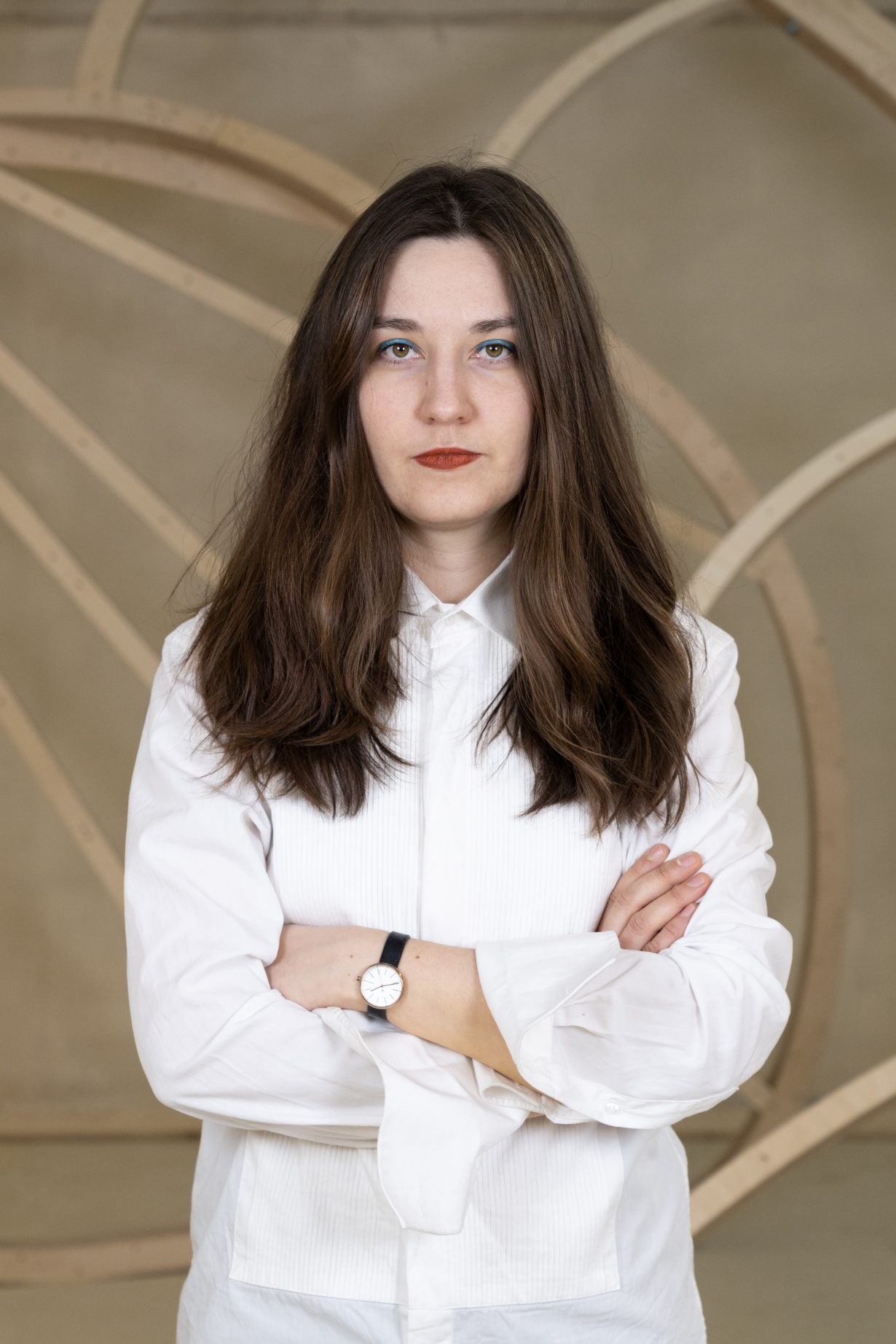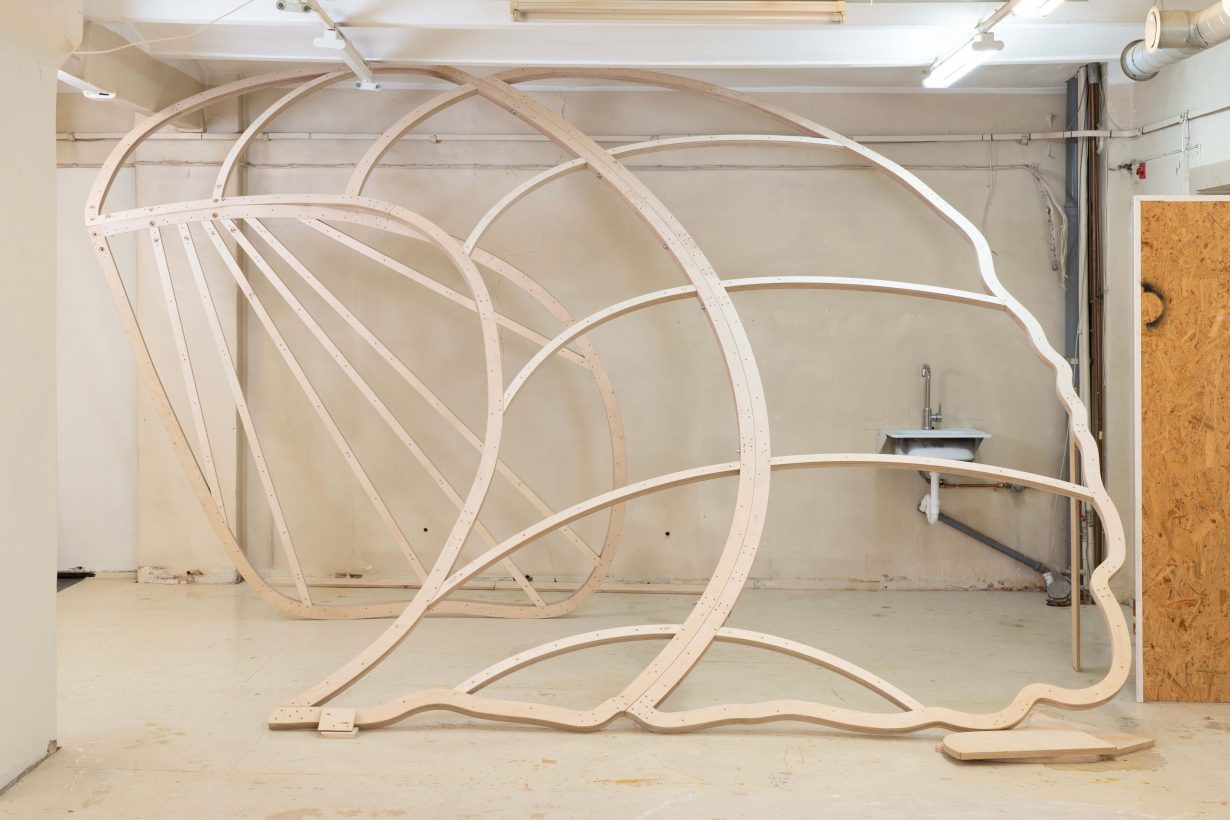ArtReview sent a questionnaire to artists and curators exhibiting in and curating the various national pavilions of the 2024 Venice Biennale, the responses to which will be published daily in the leadup to and during the Venice Biennale, which runs from 20 April – 24 November.
Amanda Ziemele is representing Latvia; the pavilion is in Arsenale.

ArtReview What do you think of when you think of Venice?
Amanda Ziemele That the sea level is rising and Venice continues to sink slowly, since the time it was built on a muddy lagoon. I get a feeling of Carpe diem.
AR What can you tell us about your exhibition plans for Venice?
AZ The title of the Latvian Pavilion is O day and night, but this is wondrous strange. And therefore as a stranger give it a welcome. Following Edwin A.Abbott’s 1884 novella Flatland. A Romance of Many Dimensions’s Shakespearian thread: a fragment of a dialogue between Horatio and Hamlet. We had a series of conversations with the curator of the Latvian Pavillion Adam Budak, he also saw my work in Riga before. That was the starting point. Later Adam Budak processed my attitude towards creative processes and chose to contextualise my worldview within a broader contemporary conditions. In a sense, talking about abstract painterly processes subordinated to interpretations of Shakesperean meta aspects, as well as reacting to certain socially important and challenging conditions relevant today.
A few months ago I visited Venice to get acquainted with the space. So to say, I established a relationship with space as an actor that has its own agency. One could say that I’m actually collaborating with it together with 8 large scale paintings as living creatures. I would say that the Window in the Pavilion determines my decisions regarding formal settings. Window is a kind of spatial point of departure.
Switching to poetic register, I would say that there’s no doubt, something has happened there, therefore eight beings entered. Who are they? Are they transforming the space into a living habitat within a painterly means? They have arrived searching for a balance and will stay there for a while questioning the rules of gravity and aiming for togetherness. Some have left their point of departure, however few have decided to stay there: partly collapsed, feeling exhausted, curiously looking through the window, making jokes and welcoming us.
AR Why is the Venice Biennale still important, if at all? And what is the importance of showing there? Is it about visibility, inclusion, acknowledgement?
AZ It’s the ancestor of all biennales. It could be perceived as a sort of dence receptacle with traces holding the memories and achievements of the previous artist generations, exhibitions and discourses, as well as the encompassing geopolitical challenges till now. In a way encapsulating and carrying a part of the art history with itself at the same time taking a part in forming and reflecting on the contemporary time we live in. It doesn’t mean that there wouldn’t be a way to maybe rethink the concept of National Pavilions in Biennale that could be developed in a new direction. I have always been wondering, if something could change, for example, if the historical buildings of the National Pavilions in Giardini could be shuffled.
AR When you make artworks do you have a specific audience in mind?
AZ I’m thinking about the viewer with an open mind entering the space.

AR Do you think there is such a thing as national art? Or is all art universal? Is there something that defines your nation’s artistic traditions? And what is misunderstood or forgotten about your nation’s art history?
AZ I assume that a language determines how we think and communicate therefore there are definitely particularities between different traditions within national arts. Also the perception of time may differ in various nations. On the other hand, language patterns are constantly in motion and changing. But to answer the question, we should agree on what one understands with the term “nation” because it is a construct. For example, the term ‘political nation’ foresees that the identity is determined by adapting to complex geopolitical changes as well as maintaining cultural traditions as far as the idea of tradition may be capsulated or – allowed to be modified. I would rather perceive the nations as living organisms within a specific environment. Anyhow I can’t deny that I feel conditioned by the tradition, because of the education I have gained and that’s based on the principles of academic painting. It gives a frame, however the tradition as such is not being clearly defined or dug out and that’s the problem. I have always questioned, what does it mean today and what should be done to clarify it and who should be the one to do that? Therefore I decided to keep an eye on it, but from a distance. I keep reflecting on the aspect of being conditioned in a Kafkaesque manner.
AR If someone were to visit your nation, what three things would you recommend they see or read in order to understand it better?
AZ Hmmmm. I must admit that the shore of the Baltic sea and the Horizon have influenced my visual perception probably the most. And I’m sure that I’m not the only one. The presence of nature and the environment is undeniable and it’s not just a phrase, it influences the perception-daily life rhythm.
Practical advice would be, visit the Latvian National museum of art as it carries the history that should be appropriately interpreted in an unbiased manner.
AR Which other artists have influenced or inspired you?
AZ From the prehistoric period to Old masters to Philip Guston and Amy Sillman.
AR What, other than your own work, are you looking forward to seeing while you are in Venice?
AZ Looking forward to seeing the Venice light and meeting other artists.
The 60th Venice Biennale, 20 April – 24 November